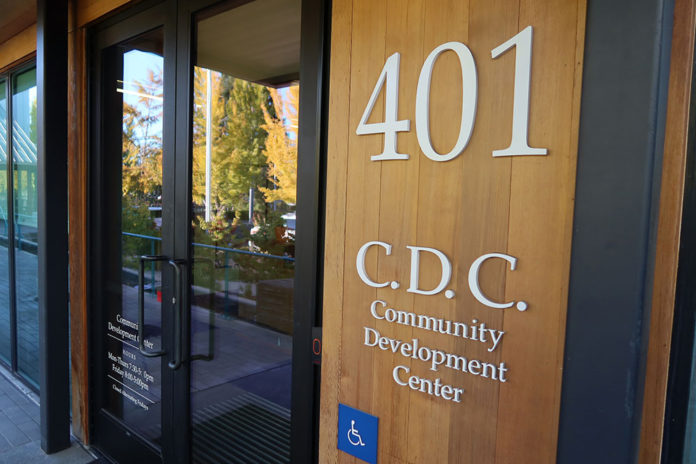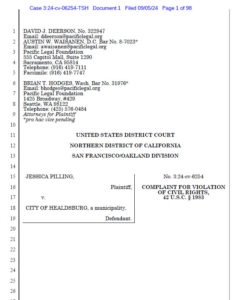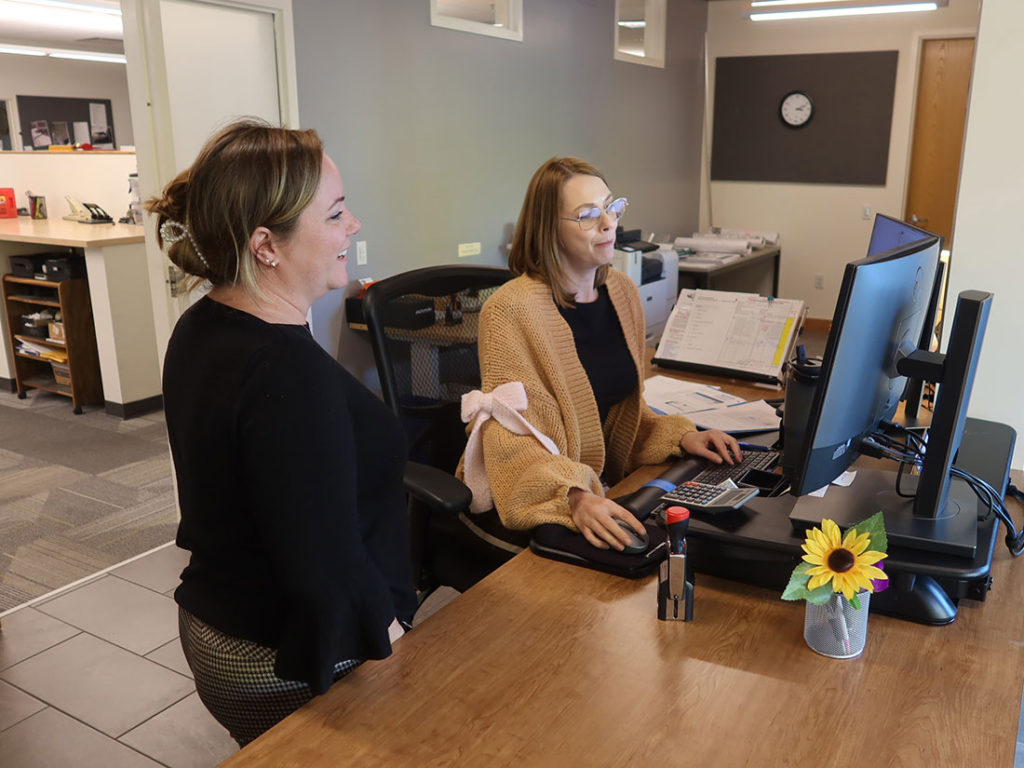
In late October it was announced that the City of Healdsburg had reached a settlement with a local couple who challenged a required $20,000 inclusionary housing fee for a new house and ADU on their residential property. The settlement, for $35,000, puts a temporary end to a legal challenge of the City of Healdsburg’s inclusionary housing fee policy.
City Manager Jeff Kay said, “Regardless of the strength of our case, the alternative was to spend exponentially more money on a protracted legal dispute, which would have redirected funds away from housing programs for our community.”
But Kay said the settlement did not invalidate the city’s Inclusionary Housing Ordinance as a tool for supporting the development of affordable housing for residents. “When projects are unable to provide affordable housing units, they are generally required to pay an in-lieu fee to support the City’s efforts to build those units. This policy framework has been validated repeatedly by California courts and is consistent with the approach taken by many other cities,” he said.
Family Matter

As reported earlier in the Tribune and elsewhere, the suit was brought in early September by the Pacific Legal Foundation of Sacramento and Seattle on behalf of Jessica Pilling and her husband Chris, owners of bikehealdsburg.com. They planned to build a new, 2,108-square-foot family home, with an attached 759-square-foot accessory dwelling unit, on a portion of their quarter-acre property. The other half of the property includes a duplex, where the Pillings live and raise their three children.
They chose to subdivide when a change in state housing law, SB9, authorized the subdivision of small urban properties in the interest of increasing housing supply. They successfully subdivided their Lincoln Street property, and began the process of acquiring construction permits for the new housing, only to be hit with an unanticipated $40,000 inclusionary housing fee on top of the usual permitting costs.
The court filing of Sept. 5 outlines the arguments the Pillings made to the city’s Planning Department about these fees, passed by the city in 2021. They said they were not informed of the fees in their correspondence with the city, and it did not appear in the documents or web sources they had consulted.
In a series of letters to the Planning Department and Director Scott Duiven, they offered various scenarios in which they could avoid or reduce those fees, including continuing to stay in the duplex and renting out the home and ADU, or renting out one of the duplex units at below-market rates. This negotiation included their argument that “our household is eligible for affordable housing,” and therefore that “we are the demographic that the affordable housing ordinance seeks to assist…”
However, Duiven invariably responded that he was unable to waive the inclusionary housing fees. “To not apply the Ordinance to your particular Project would result in inequitable treatment of applicants,” he said in a July 14, 2023 letter.

Pushing Back
The Pillings first took their case to the city’s Planning Commission on Feb. 13. The commission heard their plea and subsequently approved amending the city’s 2021 Inclusionary Housing Ordinance in light of SB9, which encouraged lot splits and exemption for single-family dwellings.
The amendment also reduced the inclusionary housing fee for the Pillings from approximately $40,000 to half that. As the City Planning Department continued to insist that a fee was nonetheless necessary, on July 15, in the interest of getting the building permit, Jessica Pilling paid a total of $79,190 in fees to the city—of which $20,134, just over 25%, constituted the in-lieu housing fee.
Having paid the fee “under protest” in order to receive their construction permit, the Pillings sought an ally in the Pacific Legal Foundation (PLF) which brought suit in the Pillings’ name against the City of Healdsburg. The lawsuit was focused on the in-lieu policy itself, one of PLF’s frequent targets in litigation.
It didn’t take long for the City to read the writ on the wall. “Recognizing that the Pacific Legal Foundation is a well-funded legal advocacy organization with a history of aggressively challenging municipal policies, the City determined that it was prudent to settle this matter for $35,000,” Kay said.
Intriguingly, City Planning Director Scott Duiven said, “We will approach future projects consistent with this settlement, and do not intend to apply the housing in lieu fee for new units created under SB9.” That implies that, were the Pillings to apply for their permit now, the question of an in-lieu fee would not come up.
The $35,000 settlement exceeded the amount the Pillings paid with their filing. The PLF is a nonprofit, and will only require a $5,000 attorney fee. The other $30,000 is destined for the Pillings, as reimbursement and “additional compensation for inconvenience and hardship,” according to a press release from the PLF.
David Deerson, an attorney at PLF, said, “As a legal matter, the government cannot use land-use permitting to make people pay for problems they are not responsible for. As a policy matter, you can’t make housing more affordable by making it more expensive, which is what the affordable housing program paradoxically tries to do.”
The settlement resolves the issue only in this particular case, said City Attorney Samantha Zutler. “There won’t be any appeal because there is no ruling to appeal,” she said. “Both parties agreed to the settlement.”
Responded Deerson, “We are glad that the City recognizes that Ms. Pilling is entitled to a refund of this fee, but we are troubled that the policy remains in place.”








Good grief! End the Inclusionary Housing Fee! It is counterproductive. The IHF makes housing more expensive. This shows what is wrong with socialism and central planning. It doesn’t work. Only the free market works along with property rights. All liberty comes from property rights. The Planning Commission might as well be called the local Soviet.